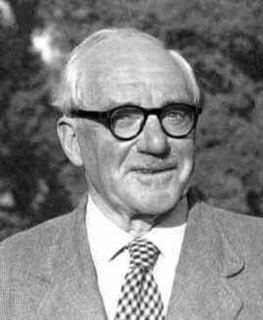A Quote by Allen W. Wood
The problem I see with utilitarianism, or any form of consequentialism, is not that it gets the wrong answers to moral questions. I think just about any moral theory, worked out intelligently, and applied with good judgment, would get just about the same results as any other.
Related Quotes
The denial of any distinction between foreseen and intended consequences, as far as responsibility is concerned, was not made by Sidgwick in developing any one 'method of ethics'; he made this important move on behalf of everybody and just on its own account; and I think it plausible to suggest that this move on the part of Sidgwick explains the difference between old-fashioned Utilitarianism and the consequentialism, as I name it, which marks him and every English academic moral philosopher since him.
I'm sure that there's frustration that comes with wanting to just have a normal mom. But, I don't really know if they see it as any different than any other problem you might have with a parent. I think everybody can think about one thing that their parents used to do, all the time, that would embarrass you.
The theory of numbers is particularly liable to the accusation that some of its problems are the wrong sort of questions to ask. I do not myself think the danger is serious; either a reasonable amount of concentration leads to new ideas or methods of obvious interest, or else one just leaves the problem alone. "Perfect numbers" certainly never did any good, but then they never did any particular harm.
It is the censor's business to make a judgment about the propriety of the content or message of the proposed expressive activity. The regulation here does not authorize any judgment about the content of any speeches. ... A park is a limited space, and to allow unregulated access to all comers could easily reduce rather than enlarge the park's utility as a forum for speech. Just imagine two rallies held at the same time in the same park area using public-address systems that drowned out each other's speakers.
When you're working as an actor, you don't think that when you get out of school, it's going to be so hard to get a job. Just to get a job. Any job. Whatsoever. You don't think that people are going to see you in a certain way. Uta Hagen said this, "In my life, I see myself as just this, you know, kind of flamboyant, kind of sexy middle-aged woman. And then I see myself onscreen, and I go 'Oh my God.'" And it's the same thing with me. I didn't see myself any different from my white counterparts in school. I just didn't!
Even if people hate my other movies, and hate me, or whatever, I think from this point of view, Postal is the most important movie after September 11. It's not respecting any edge, any border, any nation, any religion - it's an all-type offender. I think that only if everybody gets a little pissed about something then you will start thinking about your situation.
I think any time you have any kind of social ill, not just domestic violence...as much as it's about the act, the obvious theme of domestic violence, Domestic Violence Awareness Month is also about how men deal with their emotions. It's not just like who gets brutalized; sometimes it's women that are abusing men, too. I think it's just an opportunity for us to look at ourselves. How do we treat each other? Why do we treat each other that way?



































